An Interview with Bonnie Vorenberg, Founder of the Senior Theatre Resource Center and President of ArtAge Publications
Where do older adults fit into our world today? This question is currently one of great concern, politically, socially, and artistically. The growing field of Senior Theatre is one bold response. Through this week's series, we'll explore the many facets of this small but growing field. These stories highlight the sometimes-hidden power of the eldest members of our community, and share how much they have to offer to the world through their art. Bonnie Vorenberg is considered one of the definitive voices. Since she began her career in 1978, she has worn many hats, including teacher, practitioner, advocate, trainer, and publisher. —Lynn Mullin
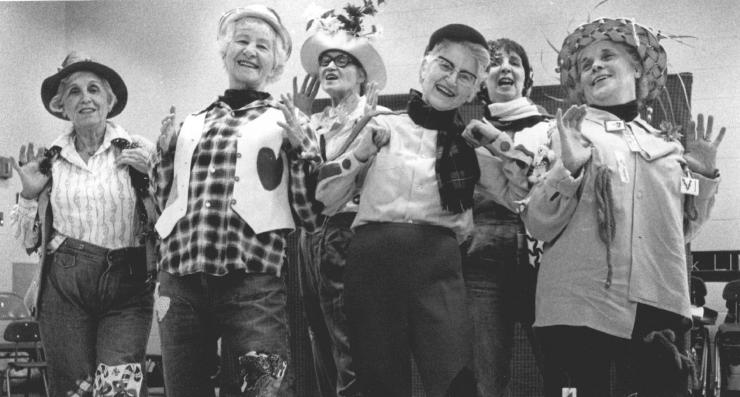
Lynn Mullin: Could you share a little bit about your background in the field?
Bonnie Vorenberg: While I was working on my Masters, I was researching Children’s theatre, and it really wasn’t connecting to me. And I got inspired: “You can do this with seniors.” That changed my whole direction. I did my Masters in theatre, dance, and gerontology. I found a performing group called the One Nighters, and I was totally stunned when I met this vibrant group of older women—intellectuals, full of wonder, curious, physically able, smart—and I became their director. And that’s how I learned to do Senior theatre. I directed them several years before I moved to Portland, where I started working all around the area doing Senior theatre. And finally, I found enough people that we formed the Oregon Senior Theatre. We got NEA funding, traveled across the country, and did national conferences.
Meanwhile, I was also the National Enrichment Director for a chain of twenty-one retirement communities in ten states. So I would travel to the retirement communities and arrange my schedule based on what shows we were having. And, of course, I burned out. I knew that I had to find another way for me to do my work. So I wrote a book called Senior Theatre Connections. It’s the first directory of all of the Senior theatres in the US, Canada, and around the world.
People loved it and would say to me, “Bonnie, I have a book of plays. Do you want to carry it?” So, what started with one book, seventeen years later ended up being a catalogue of over 400 pieces. The Senior Theatre Resource Center has the largest database, website (showing up as #1 when one Google searches “Senior Theatre”), and email list; it is the central information source for the field. And that’s where we are today.
Lynn: Why do you feel that we need more plays specifically for seniors?
Bonnie: People are realizing that retirement isn’t just a time to sit still; it’s also a time to grow and do things that you haven’t done before. Older actors aren’t interested in performing the “old chestnuts” because those plays don’t contain positive images about aging. They prefer to stage up-to-date characters in modern situations about learning to be a modern senior. So we have been adding a lot of plays to the collection. And they want more. And so we find more.
Lynn: What do you look for in the plays that you publish?
Bonnie: I look for several things: up-to-date characters, and ones that have some spunk to them. I look for plays that are funny; shows that have a lot of women’s roles; and ones that are low in technical demands because most Senior theatres tour. One of my favorite types of show is a ten to fifteen-minute comedy with six or seven women’s roles.
I love being able to connect playwrights to the world. I love being able to connect Senior theatre professionals and participants with useful, great material that works.
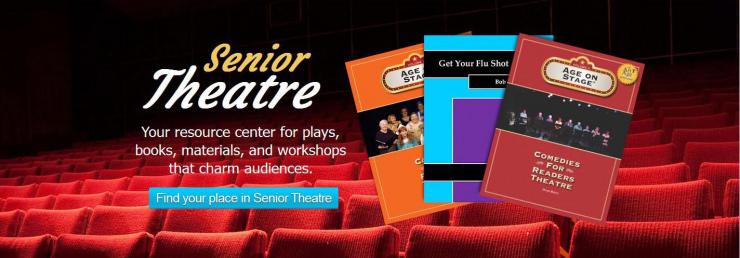
Lynn: Can you expand on why you think comedies are so popular with this age group?
Bonnie: It really comes down to the fact that as people get older, reality becomes a lot less happy. People are losing spouses, jobs, vision, and hearing. So they really don’t want to be thinking about that. They want an escape. It’s really interesting because you’ll find a lot of younger people writing plays about dementia and Alzheimer’s disease. We had over 300 plays submitted for inclusion in the last catalogue. And we had a lot—a lot—of plays about dealing with Mom and some kind of dementia, and how she’s losing it. And we selected none of those. Older adults want to be entertained and to laugh.
Lynn: What are the current trends and issues in the world that are affecting this field?
Bonnie: Well, this field is really cost-conscious. For instance, when the government shut down a few years ago, our orders just stopped. Older adults have to live off of their money, and they are worried. And they watch the news. So it’s a very volatile field.
Lynn: I’ve noticed that when schools choose to cut the arts because of funding, there’s always a pushback from the arts community. What is the funding situation with Senior theatre?
Bonnie: I was giving a talk one time, and this woman said, “Why are we decreasing the amount of the arts with younger people, and here we are talking about it with older people?” Now, the good part is that people in the aging field are becoming more aware of the emotional, physical, mental, social, and cultural benefits of seniors doing creative activity. So they are more willing to program it than before. However, there is a funding dilemma. Often, the programs are not professional enough for arts funding and not essential enough for aging funding. Also, in retirement housing, activity spaces cannot be rented as apartments so their spaces are often limited. These are long-standing problems. It’s really funny you know because when I started in this field, we faced some of these same things. However, I’m a positive person and I keep leading the charge. That’s what keeps the field going.
Lynn: What do you love about running the Senior Theatre Resource Center?
Bonnie: I love being able to connect playwrights to the world. I love being able to connect Senior theatre professionals and participants with useful, great material that works. I’m a very curious person, and I like to know what’s going on. If I find a new Senior theatre company doing something, I call them up. I have intense passion for this field, and I enjoy being able to inspire people to continue working in Senior Theatre.
Lynn: What would you say are some of the challenges you run into being a major resource in the field?
Bonnie: Ageism in the world. One person wrote in a blog, “I don’t like to be called a senior.” You know, that’s why a lot of Senior theatres have cutesy titles, because of ageism. People don’t see that growing older can be a great time of life. And by God, if you get there, you ought to be admired. I realize that I may lose some people because senior is in our title. But it’s who we are. We call our field “Senior Theatre” to create balance—“Children’s Theatre,” “Community Theatre,” and “Senior Theatre.” It’s very clean, very clear. The benefit of Senior theatre is that it helps older people be visible and give them a voice. I always say, you put seniors on stage, give them great costumes, make it a well-rehearsed fun show, and you don’t have to say any more about it. The audience will get it. Once this young boy came up to one of my actors and he said, “After seeing your show, I’m not afraid of growing older.”
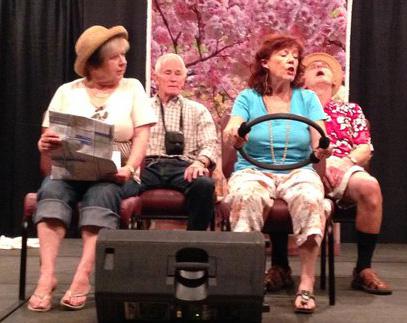
Lynn: So, what would you hope for the future of older adults’ access to theatre?
Bonnie: I would like older adults to be less in the audience and more onstage. A lot of people do too much that is passive, and I want them to be actively involved. I would like it to be adequately funded and paid for. I mean, it doesn’t have to be grandiose amounts of monies, but it should be some. I would like more appreciation put on the value of a long life well lived. I would like people in the field of aging to not only know the value of arts in aging, but also to incorporate it more.
Lynn: So, if an artist has interest in breaking into this field, what should their first step be?
Bonnie: To call me! I think all you need is inspiration, education, and a desire to do this. It’s a great field. It’s a rewarding field.
For more information about the Senior Theatre Resource Center, visit http://www.seniortheatre.com/ or call 1-800-858-4998


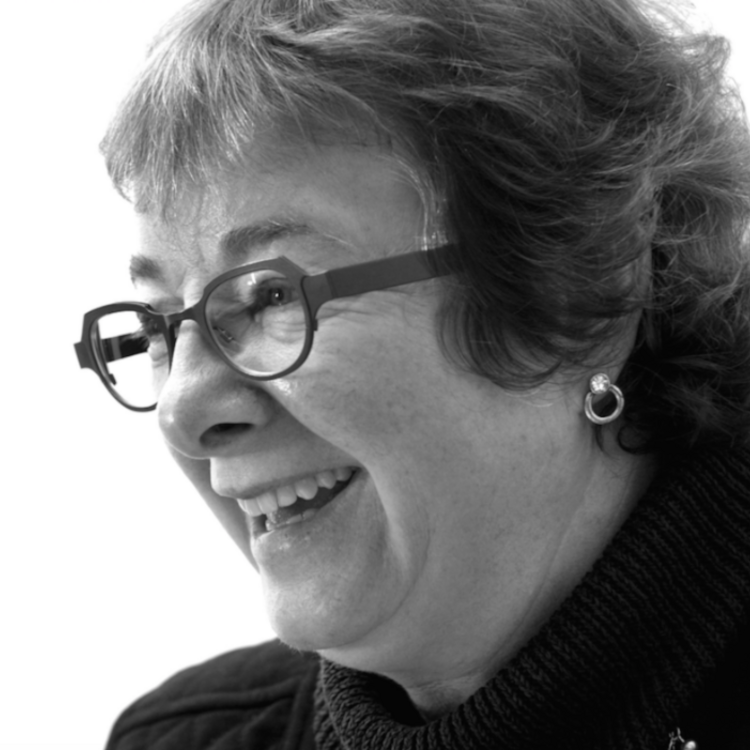


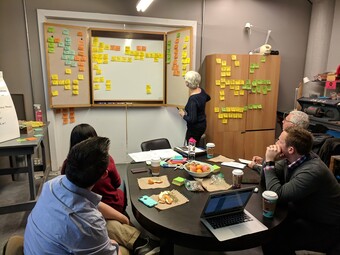






Comments
The article is just the start of the conversation—we want to know what you think about this subject, too! HowlRound is a space for knowledge-sharing, and we welcome spirited, thoughtful, and on-topic dialogue. Find our full comments policy here
"And by God, if you get there, you ought to be admired."
Admired? I can't speak for others (regarding all of the untimely deaths this year in the Chicago theater community), but as one who in recent years lost both of his sisters in their 40's and one of his best friends when she was only 39 -- all through no fault of their own -- I was a bit taken aback by this sentence.
Perhaps it would have been better to say something like "And by God, if you got there, you ought to be counting your blessings."
Thank you so much for sharing your perspective, Neal. It's an important one to hear. I assure you that this phrase was not intended to imply anything negative about those who don't make it to old age, but I can see now how it can be read that way.
I think that "And by God, if you got there, you ought to be counting your blessings," is close to the heart of the intention. However, I'd go even further in saying that the essence of the statement is not that the older adults should appreciate their age (although they should be empowered to do so), but that our community should count its blessings for having neighbors, family, and friends who made it in the world so long.
Thank you for your kind response. (And sorry for the lateness of my reply.) You make some very good points.
Obviously I'm not over all the deaths. (I don't think I ever will be.)
Best wishes,
Neal